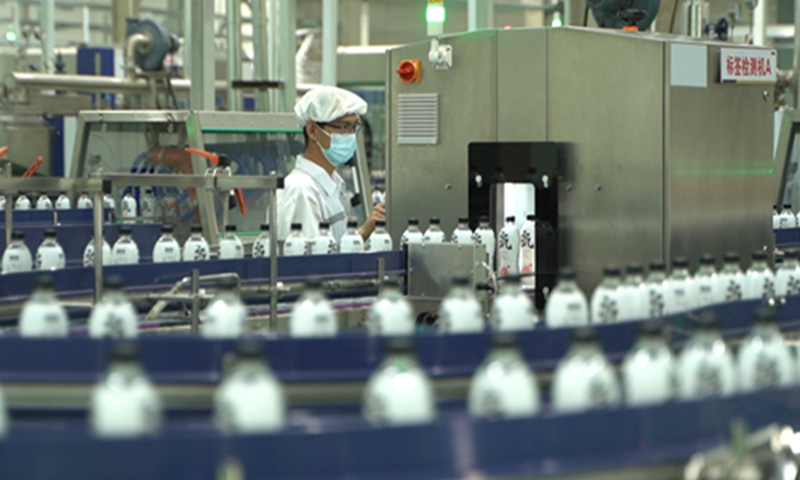
A Chi Forest's production line at its Tianjin factory. Photo: Courtesy of Chi Forest
Rapid rises in the prices of raw materials and bulk commodities, including coal and metal, have been effectively curbed in November, thanks to the implementation of policies aiming to stabilize prices and ensure domestic supply, the National Bureau of Statistics (NBS) said on Thursday.
Stabilizing prices would help alleviate cost burdens on small and medium-sized enterprises (SMEs), which have been facing financial woes and become a top priority for policymakers, experts and manufacturers said.
The producer price index (PPI) was flat in November on a month-on-month basis, compared with a 2.5 percent rise in October, the NBS said on Thursday, attributing the improvements to measures by various authorities to curb skyrocketing prices, which in turn led to increases in output and market supply of coal.
Manufacturers, especially SMEs, have faced surging production costs due to increasing raw material prices, but their burden has gradually eased.
A home appliance producer based in South China's Guangdong Province surnamed Hong told the Global Times on Thursday that raw material costs have been largely stabilized due to government policies.
The price of 20mm three-level seismic rebar, for example, is about 4,800 yuan ($756.67) per ton, down some 12 percent from October. Plastic prices are also lower, easing the pressure of constant price jumps, Hong said.
Wang Guoqing, research director at the Beijing Lange Steel Information Research Center, told the Global Times on Thursday that lower prices will reduce the production cost for downstream enterprises and help more to cope with difficulties.
Steel prices hit a second-half peak of 6,149 yuan per ton on October 9, but it has fallen by 1,022 yuan to 5,127 yuan per ton, according to Lange Steel.
Supplies and prices of bulk commodities will stabilize amid the current policies, and the market will be the major driving force for SMEs' development, Wang Jun, chief economist with Zhongyuan Bank, told the Global Times on Thursday.
"Stabilizing prices for bulk commodities is essential for small factories like us, since we don't have much bargaining power with foreign clients, and often have to bear the brunt of rising production costs or risk defaulting," Hong said.
But Hong believes prices may stay relatively high at least until the Chinese New Year next year, given booming global demand for Chinese products, high labor costs, the COVID-19 pandemic and other factors.



